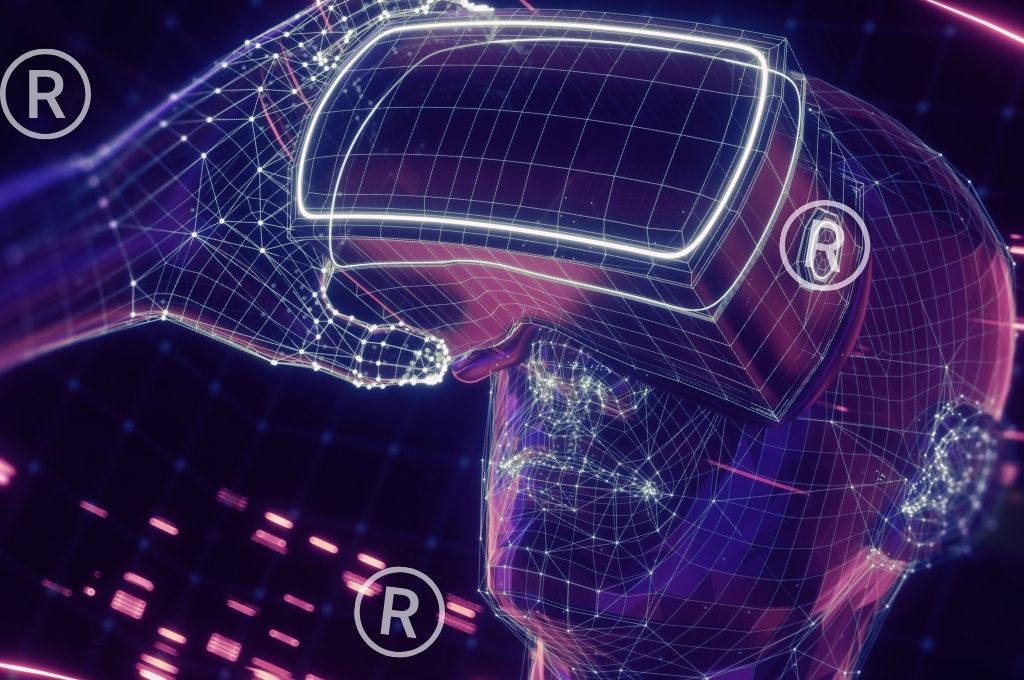Recognizable brands have been waging a fierce war against counterfeits for years. No wonder; according to the report of the European Union Intellectual Property Office in 2020, counterfeit goods detained in the European Union alone were worth almost € 2 billion.
It seems that the development of new technologies poses no lesser challenges. Earlier this year, we saw the first high-profile lawsuit for trademark infringement in the metaverse – a response of the luxury fashion house Hermès to the MetaBirkins created by Mason Rothschild, which are an original version of the famous Birkin handbags in the form of NFTs. Does the virtual bag resemble the real one? This and many other questions are now being asked by lawyers and entrepreneurs all over the world.
Who buys tokens?
First, some basic information. NFT – an abbreviation of “non-fungible token” – is a unique and non-interchangeable data unit saved in a blockchain. Although NFT itself is a digital resource, it can also successfully represent material goods. Even though at first glance the digital token seems rather abstract, thanks to the use of blockchain technology in combination with the so-called smart contracts, its potential applications are almost infinite. In this form, various types of public ledgers can be kept, tickets for events can be sold, or the authenticity of works of art can be verified.
NFTs play an equally important role in their natural digital environment. Because each NFT is non-interchangeable and unique, being simultaneously connected to other NFTs in a given blockchain, it is also called a social token, since it is worth as much as the market is willing to pay for it, and being in possession of a specific token is associated with belonging to a ‘club’ of people with specific NFTs. In the metaverse – a virtual parallel or augmented reality, if you will, rapidly developed by digital giants led by Meta Platforms, i.e. the former Facebook – tokens are things that allow one to highlight one’s style or status and join selected communities. The presence in the metaverse and the sale of their own NFTs, therefore, becomes a way for entrepreneurs to advertise in an unconventional way and to create a new market.
Although today concepts nearest to the metaverse are the realms of online computer games – such as Minecraft, Roblox or Fortnite – the increase in popularity of parallel reality does not seem very distant. In a globalised economy, we work with people from different parts of the world on a daily basis, and due to the COVID-19 pandemic, activity has moved largely to our homes. It is not hard to imagine that soon international businesses will set up offices in the metaverse, where we will meet colleagues living on the other side of the globe. After work, we will be able to go in multinational company for a drink, a concert or an NFT art exhibition.
Already today, when meeting through Zoom or posting a story on Instagram, we use a lot of filters. We can hide the mess in our room and improve our facial features. So why not buy digital clothes and accessories as a filter saved in NFT form and used for videoconferencing?
New challenges for brand protection
According to the latest reports, the demand for digital gadgets is high, and the value of many NFTs reaches staggering amounts. The total price of a hundred of the aforementioned MetaBirkins amounted to almost $ 450K. No wonder that Hermès – the owner of the rights to the original Birkin purse – decided to take legal action.
Here, however, the first obstacles appear. NFT is a digital good, most often categorised as the Class 9 or 41 of the Nice classification. The trademarks of the Hermès fashion house for the appearance and name of the Birkin bag, on the other hand, are protected as handbags and leather goods belonging to Class 18. In the case of such a recognizable brand, it will likely not be a problem to demonstrate the reputation of the marks, which helps to prohibit the use of similar markings also for other goods and services. In other cases, however, the lack of proper trademark registration may cause problems.
In order to avoid them, and to eliminate the need for difficult and costly proof of reputation proceedings, many businesses are already registering their trademarks for virtual goods and services, even if they do not yet offer them. A suitable list of goods and services to optimally protect the rights can best be prepared with the help of a professional attorney.
Another matter concerns the possibilities and manner of enforcing rights in the virtual space. Firstly, it is worth considering whether and what rules of notice and takedown apply on a given platform, or whether specialized arbitration courts operate in a given area. Resolving a dispute in this way may prove to be much faster and more cost-effective. However, if the case goes to court when, for example, one entity commits multiple violations, it is crucial to formulate a request that will allow for effective enforcement of the ruling.
Choosing the right brand protection strategy is a necessity in today’s world. Due to the rapid advancement of technology, its development must take into account not only current but also future areas of activity. The competitiveness of global market players will increasingly rely on their innovation. It is worth considering these issues today and ensuring optimal protection of your rights.


